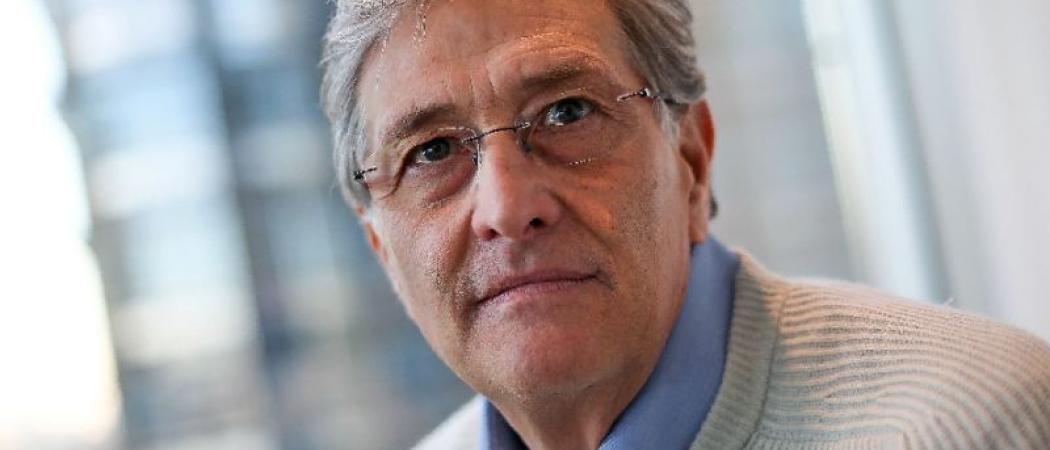Agency bracing itself for a potential exodus, while pharma companies fear a bottleneck in new drug approvals. Meanwhile, the bill for the removal stands at €400M

Director of the European Medicines Agency (EMA), Italian Guido Rasi, poses for a photo at the organisation's headquarters at Canary Wharf in east London on January 20, 2017 (AFP Photo/DANIEL LEAL-OLIVAS)
With Amsterdam crowned the winner of a fierce fight to host the European Medicines Agency after Brexit, the focus has now shifted to preventing an exodus of highly-trained scientists and regulatory specialists and avoiding a bottleneck in new drug approvals.
“We have 16 months to prepare the move,” EMA’s executive director, Guido Rasi, said. “The main challenge is not related to the physical location, but the preservation of an activity that benefits all citizens.”
EU foreign ministers narrowly voted for the agency to relocate to Amsterdam on Monday evening, in a tiebreaker ballot that saw the Dutch capital squeak past the other finalist, Milan.
The choice of Amsterdam, a city where 90 per cent of inhabitants speak English, was judged the least disorientating option by EMA staff in an internal survey. However, the same poll showed almost a fifth would be likely to quit if the city was chosen.
“Amsterdam ticks many boxes but we are likely to lose up 19 per cent of staff, which is 200 people,” said Rasi.
This is the optimistic scenario, he added; the pessimistic figure is between 25-30 per cent staff loss.
That raises concerns about disruption to the work carried out by the EMA, which acts on behalf of 31 countries in licensing drugs for use in the EU, monitoring adverse reactions and setting new standards.
Rasi said he is hopeful that the move will not cause any delay in drug approvals. However, the real effect on EMA operations will depend on which staff leave.
“We have to be very careful which expertise we will lose; we could face a collapse of specific services,” Rasi said. “The higher the expertise, the easier it will be for [these staff] to find other jobs.”
The EMA is already suffering from sterling’s loss of value against the euro since the referendum vote to leave the EU in June 2016 and budget revisions are also being made for 2018 and 2019. It has also had to put some work on hold to prepare its relocation plans.
Pharmaceutical companies are bracing themselves for backlogs and delays. “It is vital that the relocation of the EMA will be carried out in such a way as to minimise as much as possible any disruptions that could negatively affect access to medicines for patients,” said John Brennan, secretary general of EuropaBio, which represents Europe’s biotech sector.
Noel Wathion, deputy executive director of the EMA and the head of the agency’s relocation task force, said pharma companies would need to prepare for the transition, calling on them to ensure “they avoid problems in terms of supply of medicines.”
Amsterdam pitch
Amsterdam won the battle to host the EMA with an offer to build a brand new building in the Zuidas business district, seven minutes from the airport.
“Now we have to hurry,” said the Netherlands’ minister of health, Bruno Bruins, in reaction to the win. “There is a lot to be done to get the EMA starting in Amsterdam in April 2019.”
The plan is for a new, 19-floor office of about 43,000 square meters to accommodate staff and some 36,000 visitors annually.
The building will not be completed before deadline, but a backup office will be ready by January 1 2019, according to Amsterdam’s proposal, with costs of the temporary location borne by the Dutch government.
A transition team will set up shop in the EMA London office to help families prepare for their arrival to the Netherlands, advising on housing and schools.
Overall, staff are relieved to get some clarity on their future, Rasi said, although he added that the mood on Tuesday in London was “50/50”. While staff are glad the uncertainty is over they now have concerns about housing availability and schools for 600 children.
Rasi said he would make every effort to retain staff, including paying for “location visits” to Amsterdam.
He also hope to offer staff with children the opportunity to telework from London for an extended period after the move.





 A unique international forum for public research organisations and companies to connect their external engagement with strategic interests around their R&D system.
A unique international forum for public research organisations and companies to connect their external engagement with strategic interests around their R&D system.